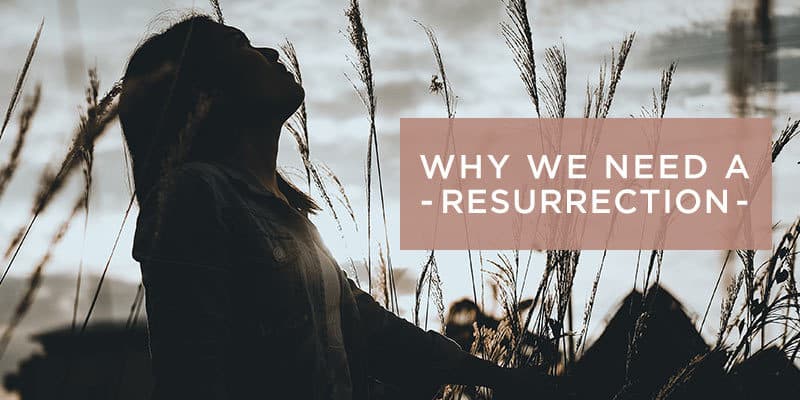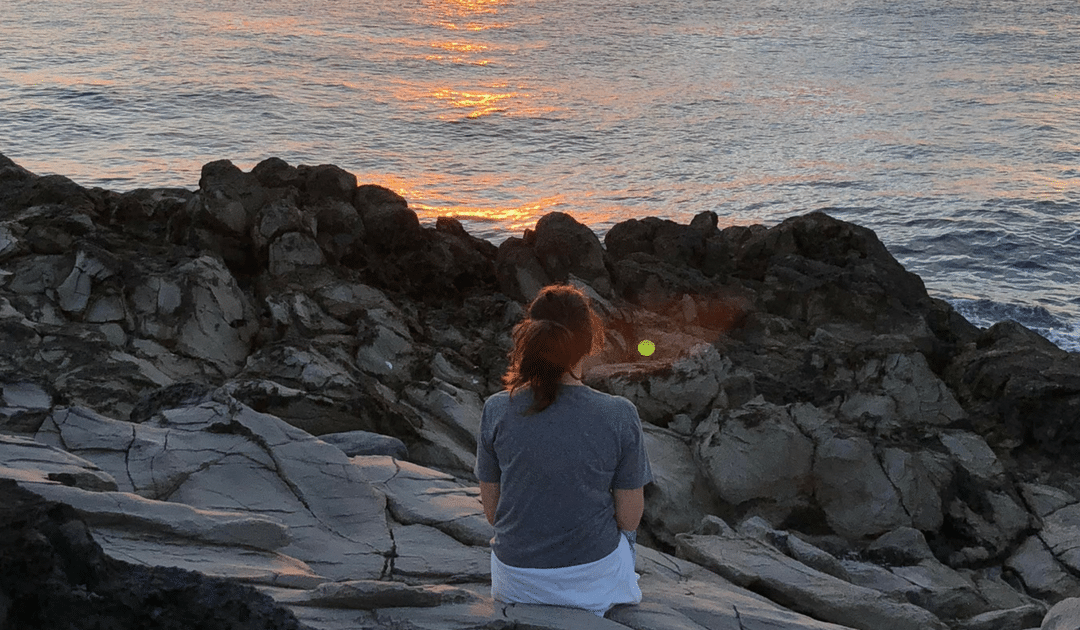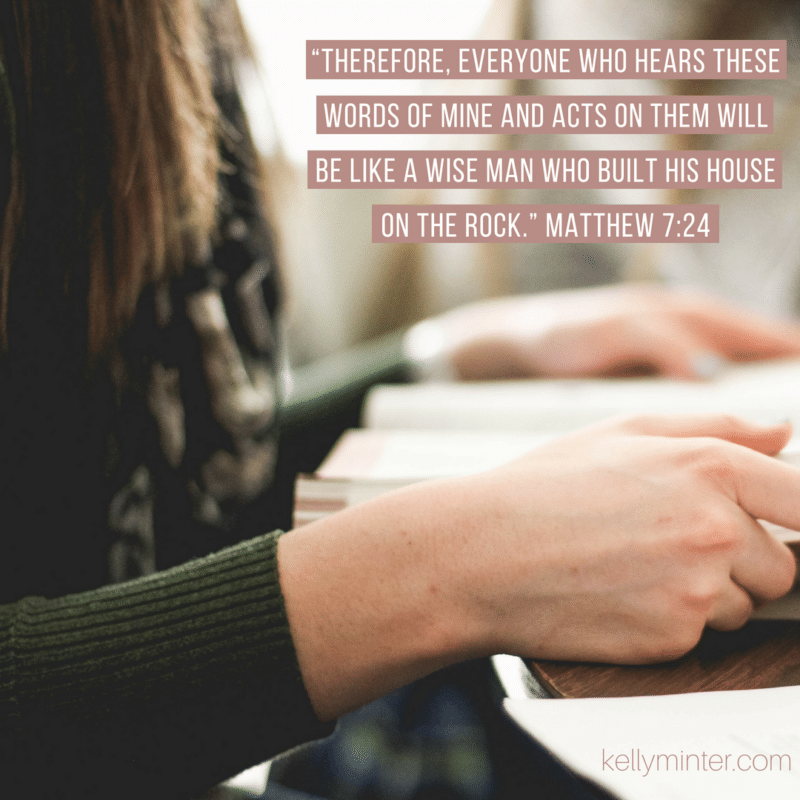Easter has come and gone. The hams, chocolate...

UNMET LONGINGS, HOPE AND CHRISTMASTIME
Most of us enter Christmastime with anticipation and dread, hope and jadedness, excitement and I’m-already-over-this.
Perhaps for most of us, it’s a blend of all of these and more. You may not be able to tell where one emotion ends and the other begins, or even why. I’m personally entering this season with some real gratefulness along with some unmet longings, and the holidays accentuate both for me. I imagine the same is true for you. While the Hallmark movies, nostalgic Christmas carols, and commercials that emphasize more stuff and romance and flawless families call forth in us an ache for more, I’m especially grateful for the way Luke begins his account of the very first Christmas.
The curtain opens on Zechariah and Elizabeth, a married and childless couple, who are longing to be parents. In a Jewish culture where having a son to carry on your family name and legacy was paramount, life hadn’t worked out the way Zechariah and Elizabeth had hoped. And we simply can’t miss that up to this point in their lives God had been silent for 400 years. No prophets, angels, signs, wonders—not a peep from heaven. It was with dashed hopes in the thick of God’s silence that Zechariah and Elizabeth move toward the very first Christmas.
HURTING BUT FAITHFUL
“Both were righteous in God’s sight, living without blame according to all the commands and requirements of the Lord. But they had no children because Elizabeth could not conceive, and both of them were well along in years.” Luke 1:6-7
It’s Elizabeth and Zechariah’s faithful obedience that makes the tiny conjunction but appear so starkly here, “But they had no children”. You can be following the commands of Jesus this Christmas season and seeking Him the best way you know how, and still there can be aches and gaps and even silence. You’re in good company with these two. My simple encouragement is to keep doing what Jesus has told you to do from His Word. Don’t complicate the way forward by turning to consumerism, numbing the pain with busyness or throwing your hands up when God seems quiet. He sees you, He knows your longings and even when He’s silent He’s moving. He had never forgotten Zechariah or Elizabeth for a single moment.[click_to_tweet tweet=”God sees you, He knows your longings and even when He’s silent He’s moving.” quote=”He sees you, He knows your longings and even when He’s silent He’s moving.”]
DOUBTFUL BUT PRAYERFUL
“But the angel said to him: ‘Do not be afraid, Zechariah, because your prayer has been heard. Your wife Elizabeth will bear you a son, and you will name him John’.” Luke 1:13
When the angel Gabrielle shattered the 400 years of silence, he did so by letting Zechariah know that his prayer had been heard. The impossibility of Zechariah and Elizabeth’s situation didn’t stop them from praying about it. The angel is almost certainly referencing all those prayers for a son that they had been praying for decades. What prayers have you given up praying? What or who have you stopped praying for because it’s been too long or too quiet? Follow the lead of these two and keep praying because God hears your prayers. Like Zechariah, even when you don’t feel it, keep serving in your houses of worship this season, expectant to encounter the Lord. He may show up in a way you least expect.
GLOBAL BUT PERSONAL
“The Lord has done this for me. He has looked with favor in these days to take away my disgrace among the people.” Luke 1:25
I have a lot of favorite Bible verses but this has to be one of my favorites of the favorites (plus, it has the word favor in it, so this works out splendidly.) The child that Elizabeth would give birth to, John the Baptist, was no doubt a gift to the world. He was appointed the forerunner of Christ who would prepare the people for the coming Savior. But notice what Elizabeth proclaims: He’s done this for me. Yes, John the Baptist would help prepare the world for the Messiah, but God is very good at doing global things while also intersecting the lives of individuals and blessing them along the way.
This Christmas while we should certainly turn our eyes to Christ and rejoice in what He has done for the world; don’t miss what He’s done for you.[click_to_tweet tweet=”This Christmas while we should certainly turn our eyes to Christ and rejoice in what He has done for the world; don’t miss what He’s done for you.” quote=”This Christmas while we should certainly turn our eyes to Christ and rejoice in what He has done for the world; don’t miss what He’s done for you.”] After years of longing, God removed Elizabeth’s disgrace and gave her a son who would be a joy and delight to his parents. He invited these two faithful yet flawed humans (Zechariah wasn’t able to speak for 9 months because of his unbelief at Gabriel’s promise) into His story and blessed them with the longing of their hearts. Most importantly, they were blessed by encountering their Savior (Lk 1:43).
No matter the ache, the years, the quietness, the Savior has come and I know He wants you to encounter Him this season. In the midst of our culture’s holiday ideals, hold fast to Him, choose obedience, commit to serving and worshiping with other believers, and who knows what the Lord might just do this Christmas for you. Encountering Him will be greater than any gift we can hope for.

WHY WE NEED A RESURRECTION

MOSES AND THE MUTUAL BENEFIT OF DELEGATING RESPONSIBILITY
The concept of delegating isn’t a new one....

WHEN GOD’S BLESSING TAKES YOU ON A DIFFERENT PATH
I remember right where I was in my house. I was...

6 ESSENTIALS FOR SPIRITUAL AND EMOTIONAL HEALTH
Two years ago I began to hit a wall. I was run...

UNMET LONGINGS, HOPE AND CHRISTMASTIME
Most of us enter Christmastime with anticipation...





